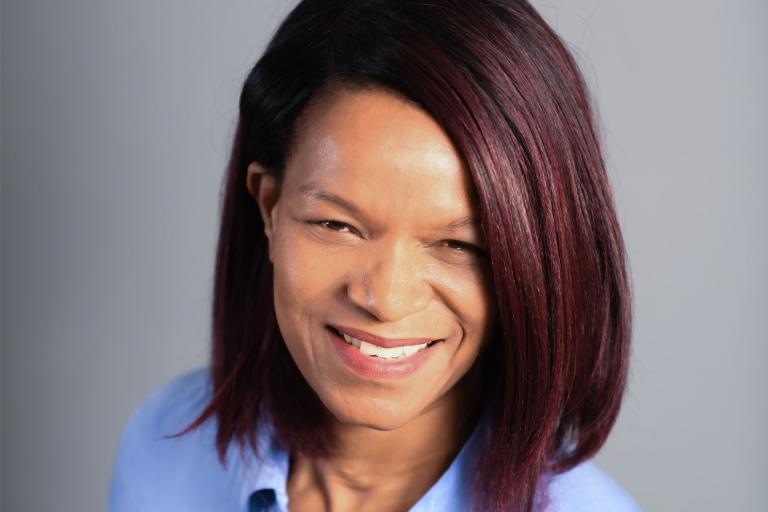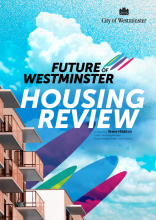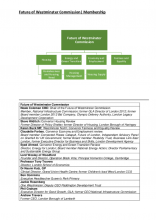About the Commission
The Future of Westminster Commission delivered its final recommendations on 10 July 2023, with the council setting out its response to more than 100 recommendations put forward by the Commission across its four reviews.
The Future of Westminster Commission was set up in July 2022 to advise the council on areas of policy that are critical to the future success of the city. It has now reviewed and made recommendations on the delivery of key council services to deliver a Fairer Westminster for residents.
The Commission’s role was to bring in new suggestions and perspectives, but not to take decisions.
It was made up of a core Commission Group with four dedicated work streams, each with its own group of expert advisers that helped develop new ideas and policy proposals.
These four strands were:
Housing
Advise on increasing genuinely affordable housing. As a priority look at options for improving our response to homelessness and housing need as well as the quality of services provided to tenants and leaseholders.
Energy and green transition
Advise on ways to enhance and accelerate climate action to achieve a net zero Westminster by 2040.
Fairness and equality
Advise on approaches and initiatives that will enable and deliver a fairer, more equal and inclusive city.
Economy and employment
Advise on how the Council enables more Westminster residents to share in the economic successes of the city.
Read the reports
Full Report 2023
Housing Review 2023
Giving communities a greater say
The Commission also focused on giving residents and communities a far greater say in council decisions and services.
It reviewed our approach to consultation on policies and service delivery seeking to ensure this is done in partnership with local communities. This included looking at our relationships and support for the voluntary and community sector.
How it worked
The Commission reported to the Leader of the Council and engaged with:
- residents
- local organisations
- businesses
- independent experts
- academics and think tanks
- other authorities
- the Mayor of London
- central government departments.
The Commission acted in an advisory role only and shared recommendations through notes, reports and presentations.
Final policy or service decisions remained with the cabinet and council in line with the constitution and usual decision-making processes.
For more detailed information as to how the Commission worked and what the strands of enquiry were looking at, see the terms of reference approved by the cabinet.
News and updates
Members of the Commission
The Commission consisted of experts with proven track records from both the public and private sector. Their expertise covered areas such as private enterprise, business improvements, politics, academia, schools, planning, and regeneration.
Neale Coleman was appointed as chair the Commission and was supported by four leads. Read more about them below.
Neale worked for Ken Livingstone and Boris Johnson at the Greater London Authority from 2000 to 2015. His main responsibility was leading the Mayor’s work on London’s Olympic bid, and the delivery of the Games and their regeneration legacy. In 2012 he was awarded the CBE for services to the Olympic and Paralympic Games.
In addition to the Olympics, Neale led the first Mayor’s approach to housing, regeneration, health and devolution and steered multi agency groups on some of London’s biggest regeneration areas. Neale has wide ranging experience of Westminster and Whitehall, strong networks in national and London government, and extensive knowledge and experience of how to deliver complex development and regeneration projects.

Steve Hilditch studied at University College London and the LSE, becoming a community worker on Westminster estates in 1972, the start of a 50 year career in housing.
He was Head of Policy for Shelter and assistant director of housing for a London borough before becoming a housing consultant working for a wide range of councils and third sector organisations.
He worked on Ken Livingstone’s London Plan, drafted the first London mayor’s statutory housing strategy, and worked on the national reform of housing finance. He is a former visiting professor at the University of Westminster and edited the Red Brick housing blog for many years.
He has advised several Parliamentary Select Committees, including on homelessness and housing investment, and chaired the government working party that established the sadly short-lived National Tenant Voice in 2009.

Syed has over 20 years working on sustainable energy policy, in a wide variety of roles and organisations ranging from industry, environmental NGOs to regional and national government. In 2012 Syed established Energy for London, a research and campaigning organisation supporting London's progress to becoming a low-carbon city.
Syed is a Director of the Parliamentary Renewable and Sustainable Energy Group (PRASEG), a Trustee for national fuel poverty organisation National Energy Action (NEA), a Board member of the Solar Trade Association. In 2017 Syed helped establish Community Energy London, where he is currently the Chair, and was appointed by the Mayor of London as a Commissioner of the London Sustainable Development Commission.
In 2022 was awarded an OBE for his services to community energy and decarbonisation.

Claudette is a highly experienced economic development and regeneration professional. She has been involved at a senior level in London’s development for more than 30 years.
Driven by a commitment to tackling inequality and deprivation, she has established a solid track record as a leader and now advisor in this field. For the past 14 years, she has operated as a freelance consultant. With a reputation for delivery, she has often been brought in by many of London’s local authorities to accelerate the implementation of schemes and programmes.
She brought substantial experience as a seasoned Non Executive Director (NED). Her current NED roles include the Future of London, and the Connected Places Catapult.
Claudette was delighted and honoured to be afforded an opportunity to bring her drive and expertise to secure important outcomes for Westminster’s residents as a member of the Future of Westminster Commission.

Karen has served as the Member of Parliament for Westminster North since 2010, and was previously MP for Regent’s Park and Kensington North from 1997 to 2010 when the boundaries changed.
She is currently Shadow Minister for Social Security and has held a number of other jobs in Government and in Opposition. These include Parliamentary Under-Secretary in the Department of Transport, Shadow Minister for Work and Pensions, Shadow Minister for Education and Parliamentary Private Secretary to the Leader of the Opposition, Ed Miliband (2013-2015)
Prior to the 2019 election, Karen served on the Joint Committee of Human Rights and is on the Panel of Chairs.
Karen’s campaign interests include housing, urban regeneration, child welfare, climate change and legal aid. She is Chair of the All-Party Parliamentary Group on Legal Aid, co-chair of the APPG for Street Children and Vice Chair of the APPG for the Private Rented Sector.
Each work stream was advised by a range of individuals with subject specific expertise. Find more details of the Commission membership and advisors below.
Further information
Read the Cabinet report that established the Future of Westminster Commission.
Watch a recording of the first meeting of the Commission on Thursday 21 June.
Read the Future of Westminster Commission update report from 6 October.





